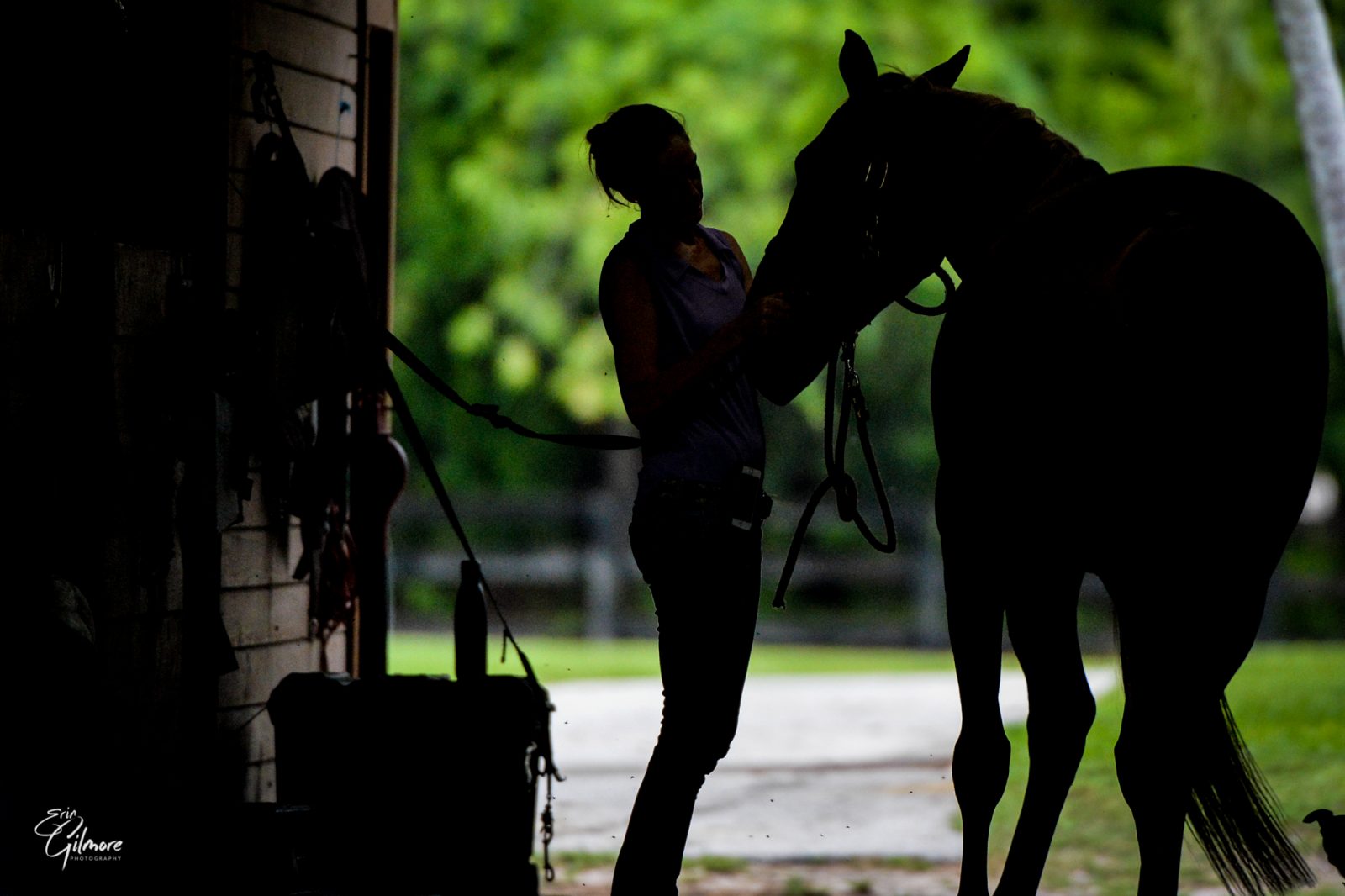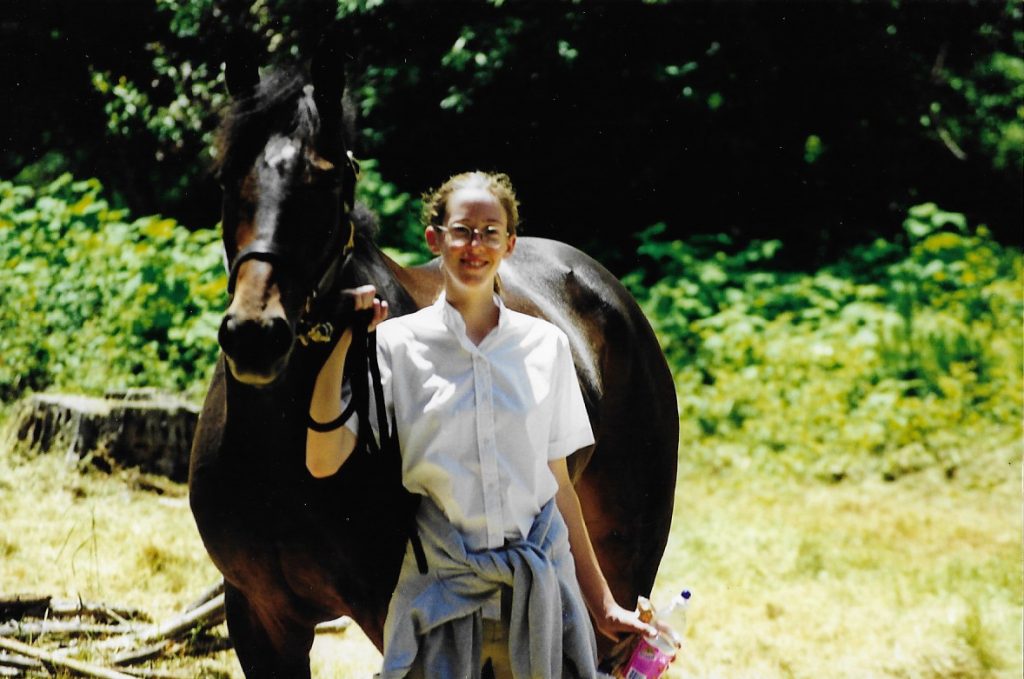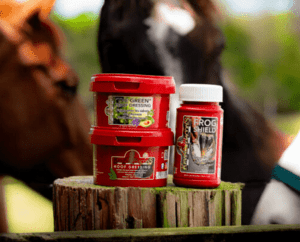Work vs. Reward: Rely On Your Own System

I will never forget the check that paid for my once-a-week, childhood riding lesson. At age 11, I knew upon arriving to the barn that I was to carefully place the check made out for $25.00 into the mailbox outside the barn office (and if I forgot, my prickly riding instructor would notice every time.) In exchange for that piece of paper, I got to tack up a horse, ride for an hour, and dream about the process for another week until it was lesson day again. I lived for the privilege that that rectangular piece of paper bought me.
When the lesson price went up to $27.50, I remember my mother’s concern about the extra $2.50. I grew up in a middle-class home with both parents who worked full time, and any small expense was not taken lightly. But I became a natural problem solver: at 15, I was told I could have my very own horse if I found one for a good price. Viola, I combed through the Horsetrader classified ads and settled on a $1,200 OTTB mare. But I would have to help work off the board cost, a whopping $250 per month. Not a problem, there was a job available doing morning turnout at a nearby barn. I could take the bus there before school. Needless to say, the work vs. reward ethic was instilled in me early on.
Today, as an adult amateur, I do the same exact problem solving and hand wringing over horse costs. But now I’m sitting in a show office, looking at a $30 association fee, a $60 office fee, a $30 non-association fee, a $20 drug fee… all on top of class fees. Every dollar still matters, but now the dollars come in multiples of 10, 20 and 50.
The desire to be a part of a team, compete with “my” barn and its special show setup with logo backdrop was also instilled in me early on. The American reliance on the week-long hunter/jumper show culture is nothing new. As a teenager, I watched my thorny old trainer take my friends who owned the real show horses in the barn, the ones that cost $15,000, to the rated shows in our area. I never had a spot on that trailer, and not only because my OTTB turned out to be quite untrained when I got her home. My family just didn’t live in a world that contained the money to spend $200 or $400 on a horse show week.

This year, my most expensive show day cost me $330.00, and started at 4:30 a.m., when I pulled my horse in from his field and drove him to the show myself. I tacked him up at the trailer and did the pre-dawn ring schooling myself. A friend coached me, another friend braided, and a whole lot of friends came out to support me (side note: I have A LOT of amazing friends!) And then I lost soundly to the riders who arrived at the show to meet their horse that had been schooled by a trainer, tacked up by a groom, and prepared by months of full-time training.
I still don’t live in a world that contains the money to buy all of that – especially now that the price for a horse show week can be $1,000 or more. Many of my adult amateur peers are reliant on that system, for sure, but does that make it wrong? When you’ve got the cash, you can surely pay for your reward in that way.
I’ll stick with my own personal work vs. reward ethic, though. Looking back, I realize that those early days paved the way in many more ways than riding lessons. My reward began at the riding school check mailbox, in knowing the difference that $2.50 could make. My independence began with that classified horse ad I found on my own. And my determination continues today, with every 4:30 a.m. start in a dark field.
So, thanks, Mom and Dad. It’s because my childhood lacked expensive show setups and grooms that I became a problem solver, an early riser, an independent thinker, and an adult reliant on nothing but my own system.


